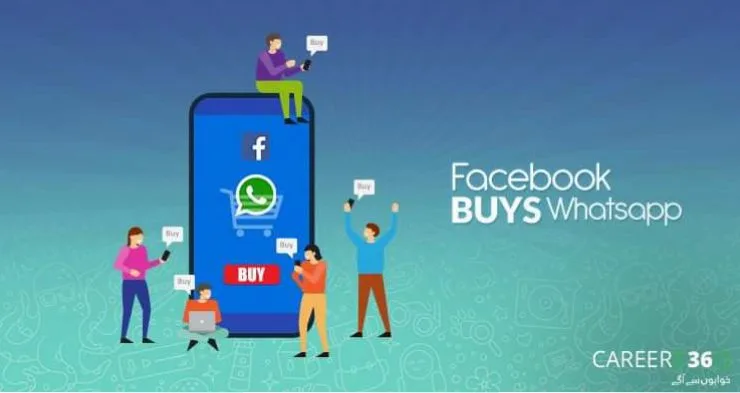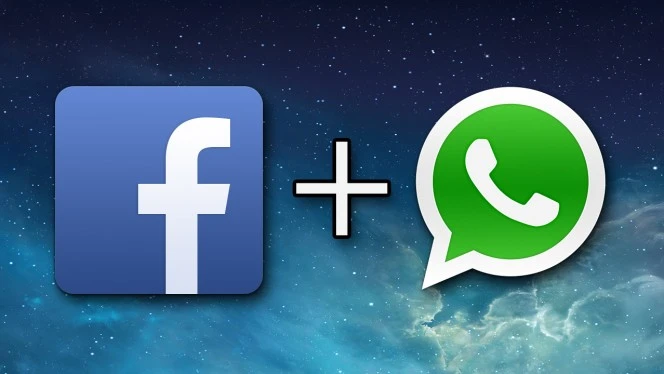Why Was Facebook’s Acquisition of WhatsApp for $21.8B Approved?

Why Was Facebook’s Acquisition of WhatsApp for $21.8B Approved? In the tech world, acquisitions often reshape industries and alter competitive dynamics. One of the most significant in recent memory was Facebook’s staggering $21.8 billion purchase of WhatsApp. While the deal raised eyebrows and sparked debates, it wasn’t just about the money. It was a strategic move with major implications for both companies and the broader digital landscape. But why did regulators approve this high-profile acquisition, given its potential impact on competition and privacy?
Key Factors in the Approval Process
At the heart of the approval were several key considerations, including competition, consumer benefits, and data privacy. Regulatory authorities worldwide—such as the European Commission and the U.S. Federal Trade Commission (FTC)—thoroughly examined whether the acquisition would harm competition or consumer interests. Ultimately, the deal was given the green light for a variety of reasons.
1. Market Competition
Despite WhatsApp’s massive user base, regulators determined that it did not directly compete with Facebook’s core social media business. WhatsApp operated in the messaging app market, while Facebook was primarily a social media platform. According to reports from the European Commission, Facebook’s acquisition did not significantly reduce competition because other strong competitors like Telegram, WeChat, and Viber already operated in the messaging space .
Regulators concluded that this acquisition would not create a monopoly or unfair dominance in the messaging market. WhatsApp, though highly popular, was not viewed as a critical threat to other messaging apps, and users still had multiple alternatives. This understanding was crucial to the deal’s approval.
2. Consumer Benefits
A significant aspect of the approval process was assessing how the acquisition would impact consumers. WhatsApp revolutionized messaging with its simple, encrypted, and ad-free service, prioritizing user privacy and experience. Facebook pledged to uphold WhatsApp’s core values, maintaining its end-to-end encryption and keeping the platform free from advertising .
These commitments were critical for regulatory approval. In a press release, Facebook reassured regulators that WhatsApp’s strong privacy protections would remain intact, even under new ownership. This assurance aligned with consumer interests and helped alleviate concerns that Facebook would use WhatsApp’s data for targeted advertising or other potentially invasive purposes.
3. Data Privacy Concerns

Given Facebook’s prior history of privacy issues, data security was a key focus during the review process. Regulators, particularly in the European Union, were concerned about how the acquisition might affect user privacy. At the time, privacy advocates feared that Facebook would integrate WhatsApp data into its broader ecosystem, compromising WhatsApp’s commitment to secure messaging.
Facebook addressed these concerns by committing to maintaining WhatsApp’s end-to-end encryption and promising not to merge WhatsApp’s data with Facebook’s services without explicit user consent . This pledge was instrumental in allaying fears about privacy violations, which could have jeopardized the deal.
4. Strategic Business Diversification
Facebook’s acquisition of WhatsApp was also seen as a strategic move to diversify its business and reduce its reliance on advertising revenue. At the time, Facebook was experiencing impressive growth but was heavily dependent on advertising for revenue. By acquiring WhatsApp, Facebook gained access to a large, untapped user base and opened up new opportunities for business messaging and payment services .
This diversification was viewed positively by regulators and market analysts alike. The acquisition gave Facebook the potential to explore new revenue streams and provided a buffer against potential slowdowns in its social media business. WhatsApp, with its secure and reliable messaging service, became a key part of Facebook’s strategy to broaden its offerings and solidify its market position.
5. Long-Term Market Impact
One of the long-term considerations in approving the deal was the potential for innovation and healthy competition in the market. Regulators believed that by allowing the acquisition, they would promote a more competitive market landscape. With WhatsApp under its belt, Facebook could focus on improving its messaging services and investing in new features without resorting to anti-competitive practices.
However, in the years since the acquisition, concerns have resurfaced about Facebook’s dominance in the digital landscape. Critics argue that while the deal didn’t create a monopoly in 2014, the long-term market implications may have shifted. With growing concerns about big tech’s control over user data and market consolidation, there’s ongoing scrutiny over whether such acquisitions benefit consumers or stifle competition in the long run .
Conclusion
Facebook’s acquisition of WhatsApp for $21.8 billion was approved for several key reasons: it didn’t significantly harm competition, it promised to uphold consumer benefits by preserving WhatsApp’s core values, and it allowed Facebook to diversify its business. The deal was a calculated strategic move that balanced market dynamics, consumer interests, and data privacy considerations. Though it remains a landmark moment in tech history, it also continues to prompt questions about the long-term effects of major acquisitions in the rapidly evolving digital landscape.
As with any significant acquisition, the deal demonstrates the complexities involved in balancing corporate growth, competition, and consumer protection. Going forward, it will be crucial to monitor how these factors evolve and what lessons can be drawn from one of the most significant tech acquisitions of the 21st century.
For more updates, check our homepage!


